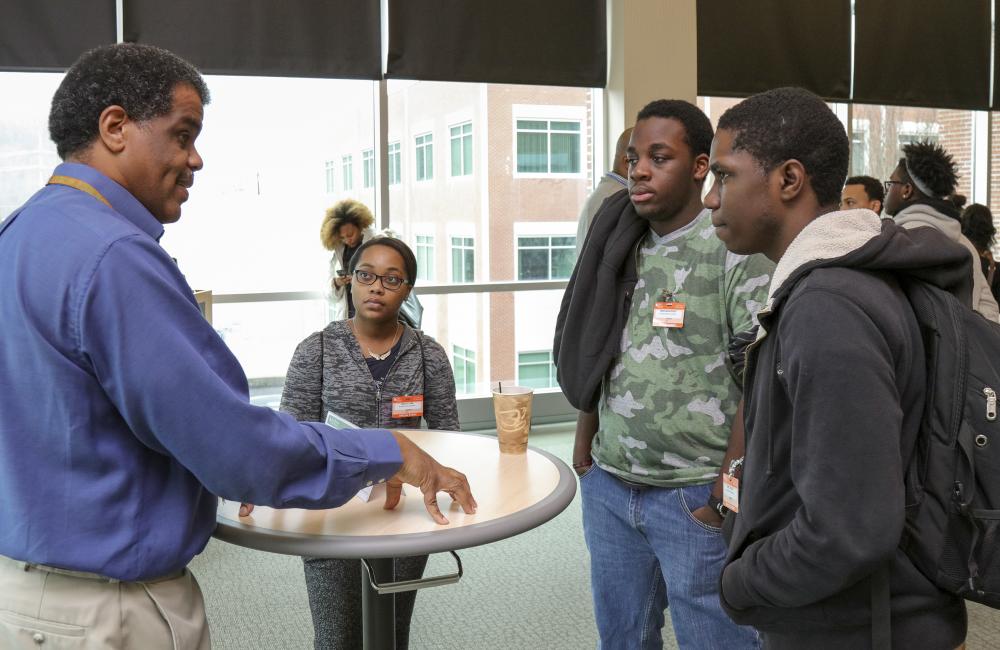OAK RIDGE, Tenn., March 3, 2016 – About 30 Austin-East High School students from Knoxville participated in the National “My Brother’s Keeper Day” at Oak Ridge National Laboratory.
The goal of the White House initiative is designed to help boys and young men of color reach their full potential.
“We’re exposing students that probably otherwise wouldn’t have these opportunities to just look at what is in their own back yard,” said Knox County Commissioner Sam McKenzie, who works in ORNL’s Neutron Sciences Directorate. “A lot of people don’t realize the treasure of Oak Ridge National Laboratory and the types of sciences being done on a daily basis. This includes not just the sciences, but the communication, financial, business and other aspects of what makes a national laboratory run. This is a wonderful opportunity for them to get it all in a one-day snapshot. Hopefully, it will help them guide their careers.”
Most of the U.S. national laboratories are participating in the initiative during the month of March.
“It basically says it does take a neighborhood to raise our children,” McKenzie added. “If you look at the demographics, a lot of those students don’t have that two-parent household. This is just an opportunity for us to say, ‘We’re going to step up as a community, as a national laboratory as a governmental entity and stand in the gap to help them make those critical career decisions.’”
UT-Battelle manages ORNL for the Department of Energy’s Office of Science. DOE’s Office of Science is the single largest supporter of basic research in the physical sciences in the United States, and is working to address some of the most pressing challenges of our time. For more information, please visit energy.gov/science <http://energy.gov/science/>.



